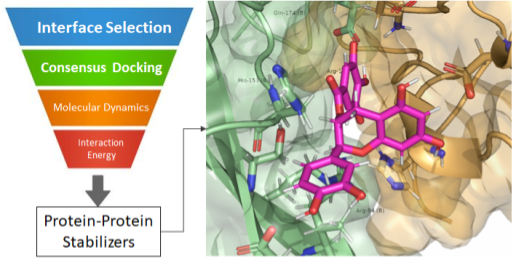The outbreak of the novel coronavirus SARS-CoV-2, the causative agent of COVID-19, has caused a global health crisis. Unfortunately, only a few treatments have proved to be effective, and their worldwide distribution remains as a challenge. Due to the urgency of the situation, drug repurposing remains as the fastest way to identify possible therapeutic options. Recent studies have shown that the stabilization of non-native Protein-Protein Interactions (PPIs) of the nucleocapsid protein of MERS coronavirus is a valid strategy to inhibit viral replication, but no study up to date has been done in SARS-CoV-2. In this work, a novel protocol for the discovery of PPIs stabilizers is presented and applied to SARS-CoV-2 N protein with a drug repurposing approach. This enabled us to identify that catechin, a structural motif present in widely distributed natural products, might be a privileged scaffold for this type of stabilization. Since many of the compounds presented in this work are generally considered nutraceuticals and have also been exhaustively studied, even though some of them contain PAINS substructures, could be good candidates for the SARS-CoV-2 nucleocapsid inhibition and be considered for further in vitro testing against COVID-19.

